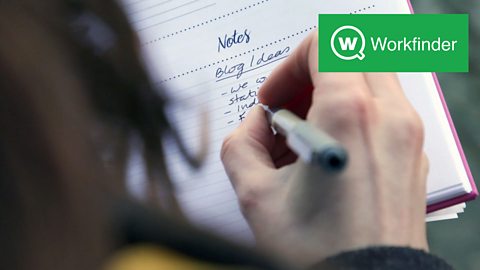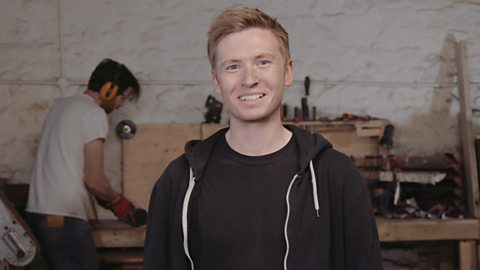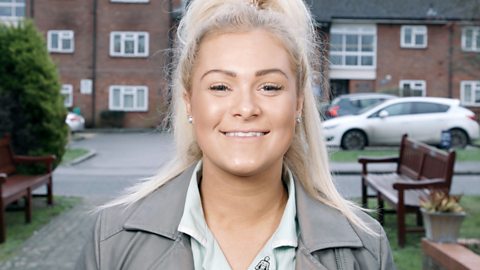Meet Lauren, 24, and find out about her life as the owner of Fodilicious, a food company making products for people with irritable bowel syndrome (IBS). Part of our Bitesize world of work series.
Lauren:
I'm Lauren, I'm 24 years old, and I'm the founder of Fodilicious.
I've always suffered from irritable bowel syndrome. IBS is a collection of symptoms including bloating, cramping, and stomach pains, where many people find it difficult to digest food.
From a young age, I always struggled with my diet and this is what encouraged me to start up my business, Fodilicious. We create products suitable for a range of dietary requirements, as our products are FODMAP-friendly certified.
FODMAPs are a wide range of foods including gluten, dairy, garlic, and onion, which are difficult for people with IBS to digest.
My mum used to make specially-made recipes without these ingredients. These recipes, that my mum and I developed at home, became the basis of the products from my company.
In the beginning, I carried out a focus group made up of people with IBS to develop products. I then sourced the help of Queen Margaret University to apply for start-up competitions, where we have successfully won funding to grow the business. The funding has helped our new product development, and also marketing and exhibitions.
Food labelling and packaging is so important. We take care in ensuring that all of our products are labelled correctly, so it's easy for people with food allergies to shop and eat with confidence.
I have always been very business-minded since school, where I studied Accounting and Administration. I then went on to graduate with a bachelor's degree with honours at Queen Margaret University in Business Management.
The university are the Scottish Centre for Food Development and Innovation, and together we have developed the UK's first allergen free, FODMAP-friendly snack product.
In the future, I'm really looking forward to helping even more people with IBS and food allergies like me.
From a young age, I always struggled with my diet and this is what encouraged me to start up my business.
- Lauren has irritable bowel syndrome (IBS), which makes it more difficult for her to digest food
- This inspired her to start her own business so she could make products for people just like her
- Lauren studied Business Management at university which gave her the skills to develop the business.

What to expect if you want to be a business owner
The salary and working hours when you own a business can vary enormously but what's most important is that you work hard and love what you do.
Working for yourself looks different for each person and each business, but in general it means you:
- run your own business and are responsible for its success
- can decide how, when and where you do your work
- charge an agreed, fixed price for your work
- sell goods or services to make a profit
- can hire people at your own expense to help you or to do the work for you.
You can be both employed and self-employed at the same time. You can work for your employer during the day, for example, and run your own business in the evenings and at weekends. It’s important to contact HMRC for advice if you’re not sure if you’re self-employed.
You can get help with setting up or developing your business, through the government’s business support services, for example, for advice about tax or about how to find funding to start your business.
This information is a guide (source: GOV.UK).
For careers advice in all parts of the UK visit: National Careers Service (England), nidirect (Northern Ireland), My World of Work (Scotland) and Careers Wales (Wales).


Find out more
Work experience in your area
Find work experience placements with Workfinder.
Tips and advice
Help with interviews, writing a CV and all things work experience related.


Dan: kitchenware maker. video
Dan runs his own business making kitchenware.

Tom: pizza business owner. video
Tom's entrepreneurial journey started when he was just 15.

Bethany: carer. video
Bethany loves her job of caring for people in their own homes.
